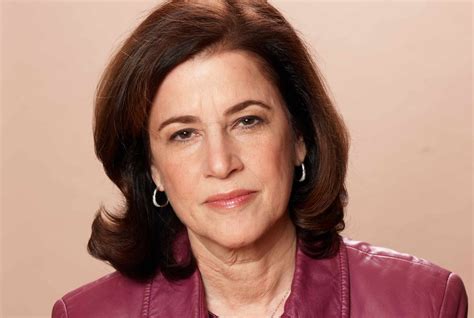A Quote by Rachel Blanchard
The child gets two confusing messages when a parent tells him which is the right fork to use, and then proceeds to use the wrong one. So does the child who listens to parents bicker and fuss, yet is told to be nice to his brothers and sisters.
Related Quotes
In considering the ledger equal, understand the greatest gift you have given your parents is the opportunity to raise you. The things a child gets from parents can't compare to the things a parent gets from raising a child. Only by experiencing this can you understand the degree to which children give meaning to parents' lives.
A child in its greed for love does not enjoy having to share the affection of its parents with its brothers and sisters; and it notices that the whole of their affection is lavished upon it once more whenever it arouses their anxiety by falling ill. It has now discovered a means of enticing out its parents' love and will make use of that means as soon as it has the necessary psychical material at its disposal for producing an illness.
Training moments occur when both parents and children do their jobs. The parent's job is to make the rule. The child's job is to break the rule. The parent then corrects and disciplines. The child breaks the rule again, and the parent manages the consequences and empathy that then turn the rule into reality and internal structure for the child.
I grew up as an only child, so inherently, most of my life was centered around me. My parents taught me to play well with others and to share my toys, but I was still an only child who didn't have to share my parent's attention with siblings. As great as my childhood was, I always wanted brothers and sisters.
A man has a right to use a saw, an axe, a plane, separately; may he not combine their uses on the same piece of wood? He has a right to use his knife to cut his meat, a fork to hold it; may a patentee take from him the right to combine their use on the same subject? Such a law, instead of enlarging our conveniences, as was intended, would most fearfully abridge them, and crowd us by monopolies out of the use of the things we have.
A child is not a Christian child, not a Muslim child, but a child of Christian parents or a child of Muslim parents. This latter nomenclature, by the way, would be an excellent piece of consciousness-raising for the children themselves. A child who is told she is a 'child of Muslim parents' will immediately realize that religion is something for her to choose -or reject- when she becomes old enough to do so.
Compared to other parents, remarried parents seem more desirous of their child's approval, more alert to the child's emotional state, and more sensitive in their parent-child relations. Perhaps this is the result of heightened empathy for the child's suffering, perhaps it is a guilt reaction; in either case, it gives the child a potent weapon--the power to disrupt the new household and come between parent and the new spouse.
Man is born an asocial and antisocial being. The newborn child is a savage. Egoism is his nature. Only the experience of life and the teachings of his parents, his brothers, sisters, playmates, and later of other people FORCE HIM to acknowledge the advantages of social cooperation and accordingly to change his behavior.
The colicky baby who becomes calm, the quiet infant who throws temper tantrums at two, the wild child at four who becomes seriousand studious at six all seem to surprise their parents. It is difficult to let go of one's image of a child, say goodbye to the child a parent knows, and get accustomed to this slightly new child inhabiting the known child's body.
To be told that our child's behavior is "normal" offers little solace when our feelings are badly hurt, or when we worry that hisactions are harmful at the moment or may be injurious to his future. It does not help me as a parent nor lessen my worries when my child drives carelessly, even dangerously, if I am told that this is "normal" behavior for children of his age. I'd much prefer him to deviate from the norm and be a cautious driver!
Without a sense of the shame or guilt of his or her action, the child will only be hardened in rebellion by physical punishment. Shame (and praise) help the child to internalize the parent's judgment. It impresses upon the child that the parent is not only more powerful but also right. Like the Puritans, Locke (in 1690), wanted the child to adopt the parent's moral position, rather than simply bow to superior strength or social pressure.
Conscious parenting is a new paradign shift in the way we look at our roles as parents. It's turning the spot light away from fixing the child and managing the child, obsession with all things that have to do with the child and the child centric approach and really focusing on the evolution of the parent. It about fully understanding that unless the parent has raised themselves to a certain level of emotional integration and maturity, they will really not be able to do true service to the child's spirit.




































